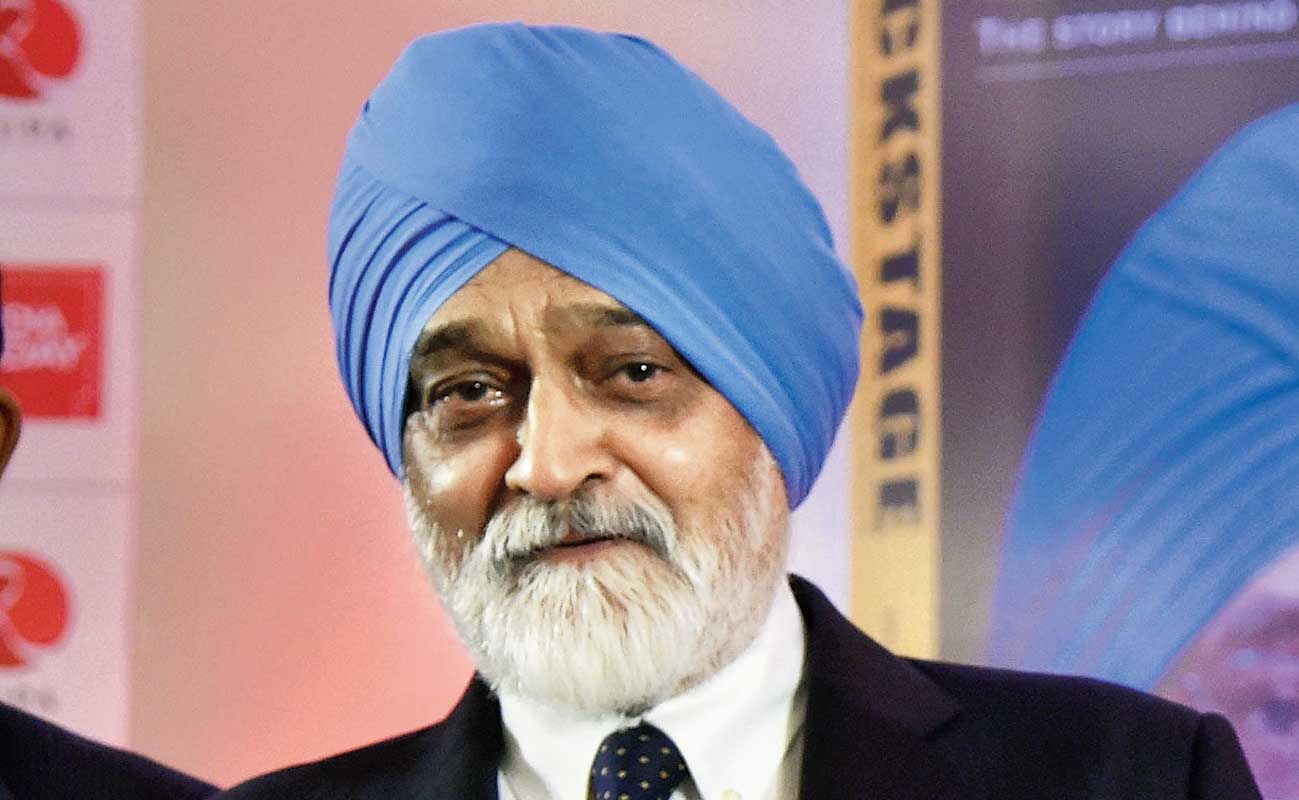Montek Singh Ahluwalia, one of the key mandarins of India’s economic turnaround post-liberalisation, has spoken against the need for a National Register of Citizens (NRC) and said the government must address genuine apprehensions over it.
“I personally do not think there is much to be gained from a national register. The costs and benefits of doing that need to be carefully evaluated…. There are obviously apprehensions on what impact these initiatives will have on the Muslim minority and these apprehensions must be addressed,” Ahluwalia has said.
He was speaking to The Telegraph a day after the launch of Backstage, his account of how India achieved her growth years in the quarter century ending 2014.
His remarks on the widespread unrest over CAA-NPR-NRC were linked to the current state of the economy which, he believes, has hit a “serious slowdown”. He made a pointed case for “restoring calm and social harmony” saying: “Not only is social harmony desirable in itself it is also necessary for investment to flourish and generate growth.”
Dissent in a democratic society “cannot be suppressed”, he contended, and said, “If there is a problem, the government must talk to the people and resolve it. Ignoring that is only risking more instability.”
Following nationwide protests, the Narendra Modi government has appeared to step back on its manifesto promise of conducting the NRC exercise. Both Modi and Union home minister Amit Shah, an unapologetic NRC proponent, have said no decision had been taken yet on the matter but there is no categorical assurance from them it will not be ordered.
Ahluwalia was deeply apprehensive about the impact of NRC and said: “The real problem is that in a country like ours, 30 per cent of the population will not be able to provide the kind of documentation needed and therefore runs the risk of being excluded. … remember that 30 per cent of the Indian population is almost 400 million people. Even if the government is well-intentioned, at the lower levels such an exercise can become the source of immense harassment. The apprehensions (of the citizenry) are not unreasonable….”
A stable society, Ahluwalia said, was critical to a robust economy, but clearly he was worried on both counts. “The social side cannot be viewed as different from the economy side. In an autocratic system dissent is more easily suppressed but in a democratic environment it cannot be suppressed and this means it is important for the political leadership to work hard to create harmony.”
He remained deeply sceptical of the government’s claim that it would achieve a $5-trillion economy by 2024. “We did grow at 8.4 per cent for the first seven years of the UPA but if growth in 2019-20 is below 5 per cent and it moves up to only 5.5 per cent in 2020-21, the economy would have to grow much faster than 9 per cent in the next four years. This is simply not feasible. I wish the finance minister had admitted that we are off target. She didn’t. If the government thinks they are firmly on track for the $5-trillion economy, then of course they would be right to go on with business as usual. But we are definitely not on track and that is why we need to take corrective steps,” Ahluwalia said.
A starting point would be for the government to recognize that the economy is in deep trouble.
The Modi government, Ahluwalia appeared to suggest, remains in wilful denial of fundamental problems with the economy.
Ahluwalia said: “It is necessary sometimes to get advice even from outside rather than just say we know. When you leave things just to ministries the tendency for them is to say, we know. Recognition of a problem, wide discussion of a problem, rethinking of policy, these are necessary. We are dealing with many things today that are very complex and to think that the ministries themselves will take care of the problem is just not credible. You need expert input and you need to involve the private sector.”










